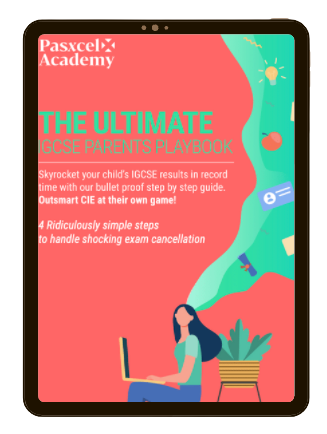How often have we heard students cry out, “When will I ever need to use algebra in real life?”, “What’s the point of learning about trigonometry?”, and the lament goes on. It’s perfectly natural that they should ask these questions but what is a shame is that no one has ever given these poor students a satisfactory answer. These are legitimate questions that require serious answers. If indeed there is no purpose to studying Maths, why then are we wasting their time forcing them to study these abstract ideas. Surely if you’re not going to become a professional Mathematician, there would be no need to study algebra or calculus or geometry. Yet, we continue to teach them in school, so either the school board is sufficiently sadistic or there is an important reason to learn Mathematics beyond just becoming a Mathematician.
It may surprise you to learn that the reason Mathematics is taught in school is perfectly simple, so simple in fact that most people don’t realize it. In fact, even a lot of teachers have forgotten or not know the reason. Mathematics is concerned with a lot more than memorizing weird formulas and finding angles. The whole enterprise of Mathematics is about solving problems. We do not teach algebra or geometry so that the students can find the area of a circle or the angles in a hexagon, those are merely the context in which the skills of problem-solving are presented. Mathematics is all about solving problems and the reason we continue to teach them is to train the students in problem-solving skills. These are skills necessary for them to make informed decisions in every aspect of their lives.
When Mathematics teaches a particular topic, for example, geometry, it requires the student to be able to imagine the shapes so that they may understand the abstract qualities that govern the behavior of those shapes. A large part of the brain is required to process these ideas. They are trained to develop their imagination to be able to visualize the concepts. Like the idea of a circle, understand one circle and you understand every possible circle that exists, no matter how big or small it may be. This abstract thinking is an essential part of decision making as well as analyzing problems. It teaches the brain to look at a problem and break it down into its essential parts. Basically, breaking down what are the important features and what is really just the “fluff”. This skill that they learn in Mathematics is of value beyond Mathematics itself. It just so happens that they are first introduced to this skill in the framework of Mathematics. The reason for this is that Mathematics is the perfect arena to practice this skill of abstract thinking.
Another important skill learnt by studying Mathematics is logical reasoning. When encountered with a mathematical problem, the solution presents itself only when the students are able to think via logical chains. Since A implies B and B implies C, therefore A implies C. No amount of guesswork is allowed in solving a Mathematics problem. Everyone can arrive at the same solution if their logic is concrete. Mathematics does not care about opinions, it only cares about logic. This skill is valuable in every aspect of life. Faced with any problem in real life, if one attacks it with the same technique one would use when confronted with a mathematics problem, the solution often presents itself more clearly or at the very least the problem becomes much clearer to state. This ability to look at a problem and realize what the main issues are is an incredibly important skill. A skill that is developed when one does Mathematics. When confronted with a Maths problem, the first instinct to ask, “What does the question wants?” And once that has been established, it becomes a matter of identifying what information one has and what further information would be necessary to solve the problem. After this is most often a trivial matter to solve the problem.
Mathematics has been maligned for so long as a “useless” subject that people often miss the fact that, if it is indeed so useless, why has it survived for thousands of years and will continue to survive even longer? If we fail to demonstrate why Mathematics is necessary, then we would be deprived of a valuable tool in our life. The skills one learns in Mathematics often prove equally valuable outside of it. If you’ve ever had to make a decision, you would have employed the skills taught in a Mathematics class, even if you were not aware of it. So, finally if ever anyone asks “when am I ever going to use Mathematics?”, you can reply with a simple, “every time”.
PS: “When will I ever need to use algebra in real life?” is not the only question I get asked at Pasxcel. My students have many quirks about them. Read all about their interesting quirks here.
Written by Pasxcel’s Master Teacher, Mr Rasyad.

Maths, Add. Maths, Physics, Python Coding & World History
Masters in Theoretical Physics
Teacher Rasyad studied Theoretical Physics and for a while he was working as a theoretical physicist. His area of research was Theoretical Nuclear Astrophysics and Particle Physics. His passion for teaching Mathematics and Physics led him to become a teacher with Pasxcel where he aims to instil in his students the joy of finding things out. His classes are usually very broad ranging and engaging. And rather than just explaining the concepts, he ties it in with the students’ experiences, the mundane then becomes the beautiful. His classes tend to have a habit of going into far off regions where he takes his students on a tour of the universe, from the very big to the very small, stretching the limits of their imaginations.













